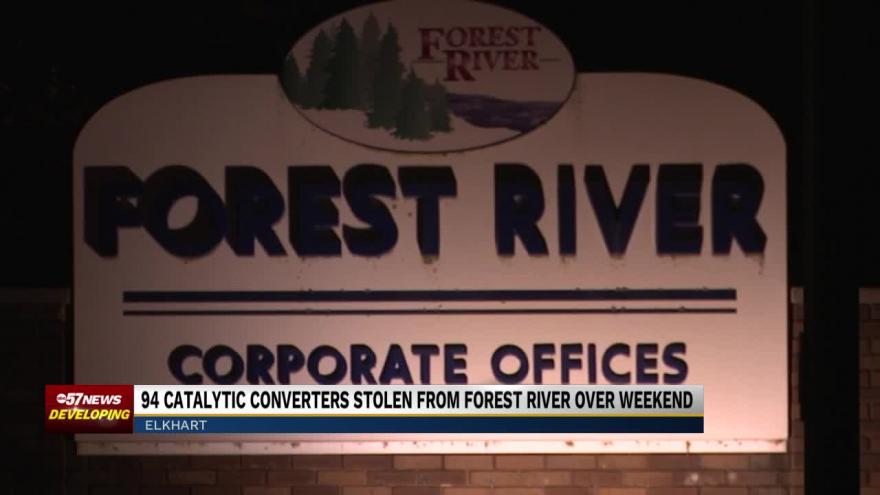Elkhart Police see catalytic converter thefts jump more than 500%
Catalytic converter thefts jumped more than 500% in Elkhart last year, according to the Elkhart Police Department. Now, investigators are kicking off 2022 with a major heist from a Forest River RV facility, where someone stole 94 catalytic converters.
It's a growing problem across the U.S., but differences in Indiana and Michigan laws may be driving local thefts.
Because of the valuable metals used to make catalytic converters, they can sell anywhere from $50 to $2,000. Meaning the stolen part is sometimes worth more than the car it's stolen from.
Elkhart Police officer Jason Ray said catalytic converter thefts have become a daily issue in the city, demanding more resources from the department than ever before.
“We had to really broaden our scope of where we’re hitting and patrolling, and doing all the enforcement,” Ray said.
The Elkhart Police Department said there were 60 catalytic converter thefts reported to the department in 2020. In 2021, there were at least 316 catalytic converters stolen.
Officer Ray believes a discrepancy in state laws are helping drive thefts in Indiana and illegal sales in Michigan.
According to the Institute of Scrap Recycling Industries, scrap metal dealers in Indiana are only allowed to buy a catalytic converter if the seller can show proof of ownership; including the certificate of title, registration, ownership, receipt from repair, or an affidavit from law enforcement. But in Michigan, along with ID and personal information, sellers are only required to sign a voucher saying the catalytic converter is legally owned.
“[Investigators are] trying to identify if somebody steals a catalytic converter, who are they selling to?” Ray said.
Elkhart Police have taken a two-pronged approach. First, officers are cracking down on buyers by making sure they’re keeping records required by law and using those records to identify potential suspects. Second, EPD is increasing officer details on high-risk areas to catch thieves in the act.
“Using unmarked cars, or foot patrols, bicycle patrols, where maybe we can be a little more covert,” Ray said.
Vehicle owners can proactively go under the car, and etch their VIN into a catalytic converter, which can help catch criminals.















